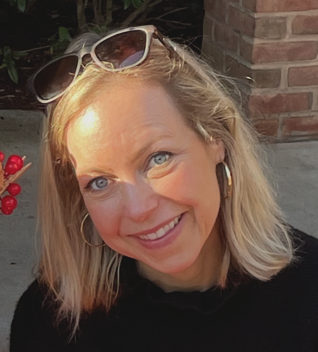Adair's Story

Adair’s diagnosis of stage III triple-negative breast cancer didn’t seem to make sense. She was forty years old, healthy, and active. She had a normal mammogram only four months before she identified a lump in her breast. When genetic testing identified a pathogenic variant in the PALB2 gene (c.2052del), this news didn’t make sense either – she had no known family history of breast or other PALB2-related cancers.
The identification of Adair’s PALB2 variant, though surprising, was a welcome and concrete piece of information in the midst of the many uncertainties that come with a cancer diagnosis and treatment. It gave her an explanation for being diagnosed with cancer so young. It also provided a “data point that would help me with my treatment plan,” she said.
This data point:
-
Made Adair’s decision about surgery easier. She opted for a double mastectomy instead of having just the breast with cancer removed. (While she prepared for surgery, cancer was identified in the other breast, which further supported her decision to have a double mastectomy.)
-
Helped Adair and her doctors plan for chemotherapy and radiation. They opted for the maximum recommended dose of each. Her treatment course was “very brutal,” she said, but she knew “I’m going to do absolutely everything I can to be there for my family and be well.”
-
Prompted Adair’s doctors to monitor her ovaries for changes. Several years after her breast cancer treatment, the doctors identified something suspicious on her ovary. They wasted no time scheduling surgery to remove both ovaries and fallopian tubes.
-
Brought Adair and her father closer than they were before. After his recent diagnosis of prostate cancer, genetic testing revealed he had the same PALB2 variant. The information guided his cancer treatment.
-
Will give Adair’s young daughter the opportunity to test for this data point when she is an adult and, if she shares the variant, take appropriate steps to prevent cancer. For Adair, talking with her daughter about cancer prevention tools takes away some of the fear that comes with having a family history of cancer.
Adair later learned that her paternal grandmother was diagnosed with metastatic breast cancer and passed away in her 40s. Armed with knowledge about the variant, Adair continues a fight against disease that her grandmother was not able to. Genetic testing for hereditary cancer is giving her family – and so many other families like hers – powerful data points that help with making decisions about cancer screening, treatment, and prevention.
